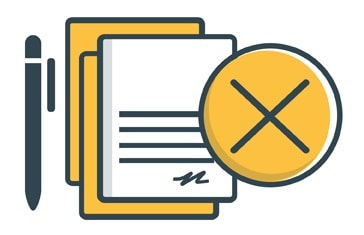Business Interruption Insurance - The Definitive New Zealand Guide
Protect your business with Business Interruption Insurance, which pays out for lost income and increased costs in the case of unexpected events like fires, flood and equipment breakdown. We list the insurers and brokers offering policies, must-know facts, alternatives and frequently asked questions.
Updated 20 July 2024
Summary:
Overall, business interruption insurance can be a valuable tool for businesses that want to protect against the financial impacts of a covered event, however you'll need to challenge the affordability of a policy as the ongoing costs will add up over time. To help you make an informed decision, our guide covers:
Important: Insurers offering Cover
- Business interruption insurance is a type of cover that provides financial support in the event of an unexpected interruption to your business operations. This could be caused by damage to your premises or equipment from events like fire, storm, or flooding, or from the breakdown of essential equipment.
- The idea of a policy is to give you cover so you can focus on rebuilding your business instead of worrying about paying bills or securing income, with benefits including cover for loss of income and additional costs of running your business during the interruption such as rent, utilities, payroll, and the cost of renting a temporary location. This means you're covered for a decrease in income and an increase in costs.
- Some policies may also cover interruptions due to people being unable to access your business premises or damage at a supplier or customer's location. Additionally, separate specialist policies are available to protect your business against cyber risks like viruses and hacking.
- Generally, when making a claim, business interruption insurance can compensate you for lost profits and any increased expenses incurred as a result of the interruption.
- Policies vary, and not all types of events or circumstances are covered; there are exclusions and limitations on coverage.
- You can buy a stand-alone policy or combine it with an existing business insurance package.
- While policies are valuable, the ongoing costs can be expensive, especially for businesses in high-risk industries or locations.
Overall, business interruption insurance can be a valuable tool for businesses that want to protect against the financial impacts of a covered event, however you'll need to challenge the affordability of a policy as the ongoing costs will add up over time. To help you make an informed decision, our guide covers:
- What Influences the Cost of Business Interruption Insurance?
- What Businesses are at Higher Risk of Needing Business Interruption Insurance?
- Business Interruption Insurance Alternatives
- Reasons Why a Business Interruption Insurance Claim May Be Denied
- Frequently Asked Questions
Important: Insurers offering Cover
- We have grouped insurers into online quotes (insurers and brokers), offline insurers and offline brokers. While we prefer online quotes, the reality is many insurers offering business interruption policies are less dynamic than insurance for cars, homes and contents etc. "Offline" means you'll need to submit your details and then wait for a representative of the insurer or broker to contact you with a quote for your business.
- Online quotes: BizCover and State,
- Offline insurers: FMG and Tower
- Offline brokers: Runacres, Apex Insurance, Rothbury, Aon, Chubb, Steadfast and Crombie Lockwood
Know This First: Is Business Interruption insurance paid out per week, per month or per claim?
- Policies typically pay out per week or per month based on the terms and conditions specified in the policy. The insurance company will calculate the amount of compensation you are eligible for, considering factors such as your projected lost profits, fixed expenses, and other costs associated with the interruption of your business operations.
- The payment schedule and amount will be determined by the specific policy provisions and the information your claim provides. In some cases, the insurance company may make a lump-sum payment instead of making payments over time.
MoneyHub Founder Christopher Walsh shares his views on choosing a business interruption insurance policy:"Obtaining quotes for business interruption insurance is crucial as every business has unique needs and circumstances, operates differently and has its own set of risks and exposures, meaning prices will vary alongside your specific needs".
"Our research proves that policies vary - some may only cover specific types of disruptions, while others may provide broader coverage at a higher cost. In addition, some businesses also need specific cover, such as protection against cyber risks or coverage for damage at a supplier or customer premises". "To get accurate quotes, you'll need to be as specific as possible in the quoting stage. Online quotes can be obtained from several insurers; most websites revert to traditional brokerage. We've listed various options to make the quote process easier". "Whatever you do, if you decide to take out a policy, make sure the cover limit is appropriate for your business - under-insuring has significant financial consequences as a limit of working capital and assistance can curtail the restarting of your business". |
Christopher Walsh
MoneyHub Founder |
What Influences the Cost of Business Interruption Insurance?
There are several factors that can influence the cost of business interruption insurance:
Know This: With 2,000+ professions and other data points driving quotes, you'll need to be as specific as possible with your business information to get the best possible pricing - no business is alike and the quotes reflect this.
- The size and type of business: Business interruption insurance premiums can vary depending on the size and type of business. For example, a large manufacturing company may pay more for coverage than a small retail store.
- The location of the business: Businesses that are located in areas prone to natural disasters or other types of disruptions may pay higher premiums for business interruption insurance.
- The level of coverage: The amount of coverage you choose will also influence the cost of your business interruption insurance. A policy with higher coverage limits will typically have higher premiums than a policy with lower limits.
- The excess: The excess is the amount that you will be responsible for paying out of pocket before the insurance company begins covering a claim. A policy with a higher excess may have lower premiums, but it's important to consider the potential impact of the deductible on your business if you need to file a claim.
- The claims history of the business: Businesses with a history of frequent or costly claims may pay higher premiums for business interruption insurance.
Know This: With 2,000+ professions and other data points driving quotes, you'll need to be as specific as possible with your business information to get the best possible pricing - no business is alike and the quotes reflect this.
What to look for in a business interruption insurance policy:
When comparing business interruption insurance, there are a few key things to consider before deciding upon a policy:
- Coverage limits: The maximum amount the insurance company will pay for a covered event; you'll need to ensure the coverage limits are sufficient to protect your business in the event of a significant loss.
- Duration of coverage: The length of time the insurance company will pay for lost income and extra expenses. This can be important if it takes a long time for your business to fully recover from a covered event.
- Covered events are the types of events covered by the insurance policy and Exclusions: Each policy covers what events or circumstances are (and are not) covered by the insurance policy - it's critical to review the exclusions carefully to understand what is not covered by your policy.
What Businesses are at Higher Risk of Needing Business Interruption Insurance?
Certain businesses may be at higher risk of needing business interruption insurance due to their location, type of operations, or reliance on specialized equipment or machinery. Some examples of businesses that may be at higher risk include:
- Businesses that rely on a single location or facility, such as restaurants or retail stores. These businesses may be more vulnerable to disruptions caused by events such as natural disasters or power outages.
- Businesses that operate in areas prone to unfavourable New Zealand weather, such as Auckland and Northland (as experienced in the 2023 floods). These businesses may need business interruption insurance to protect against the financial impacts of these events.
- Businesses that rely on specialized equipment or machinery. If this equipment is damaged or becomes inoperable, it could lead to significant lost income and extra expenses for the business.
Tips to Reduce the Cost of a Business Interruption Insurance Policy
Business Interruption Insurance is an ongoing cost that cashflows need to cover month after month. To lower the costs will maintaining suitable cover, we suggest considering the following:
- Purchasing a high excess policy: A policy with a higher excess will usually mean lower premiums, which can help to reduce the overall cost of the policy. However, it's important to remember that you will be need to have enough money for paying the high excess if and when you need to claim.
- Review your policy limits: Make sure that the policy limits accurately reflect your business's value; there's no point under-insuring as you may not be fully protected in the event of a significant loss. Conversely, if your policy limits are too high, you will likely pay for more coverage than you need.
- Implement risk management strategies: By taking steps to reduce the likelihood of a covered event, you can lower the cost of your business interruption insurance. Some strategies you may consider include developing a disaster plan, regularly maintaining equipment and facilities, and reducing the risk of theft or vandalism.
- Compare quotes: While few Business Interruption Insurance policies can be generated online, you can still get a range of quotes - our list below includes popular options:
Business Interruption Insurance Alternatives
- Contingency planning: Developing a contingency plan can help a business prepare for and respond to unexpected events or disruptions. This can include identifying alternative sources of income, establishing relationships with suppliers and vendors, and having a plan to maintain operations in the event of a disruption.
- Business continuity insurance: Business continuity insurance is similar to business interruption insurance, but it focuses specifically on helping businesses maintain operations in the event of a disruption. This can include providing temporary workspace, hiring temporary staff, and covering the cost of relocating the business.
- Self-insurance: Some businesses may self-insure, which means they set aside funds to cover the costs of potential disruptions or losses. This can be a cost-effective option for businesses with a low risk of disruption and can afford to set aside a portion of their profits to cover potential losses.
- Risk assessment and management: Businesses can identify and mitigate potential risks that could disrupt their operations by conducting a risk assessment and implementing risk management strategies. This can include things like implementing safety protocols, maintaining equipment and facilities, and developing contingency plans.
What does Business Interruption Insurance Exclude?
Business interruption insurance policies can vary, so it's important to carefully review the exclusions in your policy to understand what is not covered. Some common exclusions in business interruption insurance policies include:
Important: Policies vary and there's too much room for a misunderstanding - if you're unsure about anything, ask the insurer and make sure you understand the answers provided.
- Damage to the physical property of the business: Business interruption insurance typically does not cover damage to the business's physical property. For this type of coverage, you will need a separate policy, such as property insurance.
- Losses due to economic downturns or market conditions: Business interruption insurance typically does not cover losses resulting from economic downturns or market conditions, such as a recession or financial crisis.
- Losses due to criminal acts: Business interruption insurance may exclude losses resulting from criminal acts, such as theft or vandalism. However property-specific policies will cover such events.
- Losses due to specific exclusions listed in the policy: Business interruption insurance policies may include specific exclusions for certain events or circumstances. It's important to carefully review the exclusions in your policy to understand what is not covered.
Important: Policies vary and there's too much room for a misunderstanding - if you're unsure about anything, ask the insurer and make sure you understand the answers provided.
Reasons Why a Business Interruption Insurance Claim May Be Denied
Business Interruption Insurance policies are worth nothing if you can't claim on them. Common reasons for denied claims include:
Know This: If your business interruption insurance claim is denied, we suggest fighting for an appeal unless it's obvious the claim isn't covered. Insurers do make errors - if you've purchased the policy through a broker they will make the claim for you and consult to understand the reason for the denial and what steps you can take to appeal the decision.
- The event or loss was not covered by the policy: Business interruption insurance policies typically include a list of covered events and exclusions. If the event or loss that caused the disruption to your business is not covered by the policy, your claim may be denied.
- The policy limits were exceeded: Every policy has coverage limits, which are the maximum amount that the insurance company will pay for a covered event. If the losses or expenses resulting from the covered event exceed the policy limits, the claim may be denied.
- The claim was not filed within the required time frame: Business interruption insurance policies typically have deadlines for filing claims. If you do not file your claim within the required time frame, it may be denied.
- The claim was not properly documented: Business interruption insurance claims typically require documentation of the loss, including financial records and other supporting materials. If the claim is not properly documented, it may be denied.
- The loss was due to the business owner's actions: Business interruption insurance policies may exclude losses that are the result of the business owner's actions. For example, if the loss was caused by the owner's negligence or misconduct, the claim may be denied.
Know This: If your business interruption insurance claim is denied, we suggest fighting for an appeal unless it's obvious the claim isn't covered. Insurers do make errors - if you've purchased the policy through a broker they will make the claim for you and consult to understand the reason for the denial and what steps you can take to appeal the decision.
Frequently Asked Questions
Every business is unique - the information below is general in nature and not specific to any industry or business-type. If you have any questions about a policy, contact the insurer and make sure you understand the answers provided.
Does business interruption insurance cover pandemics?
It depends on the policy; some may include coverage for pandemics, while others may exclude them. If you want such cover, you'll need to check each policy in detail. As a background, IAG insurance paid millions of dollars for business interruption claims during COVID in 2020-2022, but policies vary and before 2020 a global pandemic wasn't seen as a likely risk.
Can I purchase business interruption insurance as a standalone policy?
Yes, purchasing business interruption insurance as a standalone policy is possible. However, it is often included as part of a broader business insurance policy, such as standard business insurance.
Can I get business interruption insurance for my home-based business?
Yes, getting business interruption insurance for a home-based business is possible. However, it's important to note that the coverage may be limited to events that directly impact the home rather than events that impact the business itself.
What types of events are typically covered by business interruption insurance?
Covered events can vary depending on the specific policy, but they may include natural disasters such as earthquakes, tropical storms, floods, power outages; and damage to power lines. Some policies may also cover events such as fire, theft, or vandalism.
Can I get business interruption insurance for my online business?
Yes, getting business interruption insurance for an online business is possible. This type of insurance can cover the loss of income and extra expenses resulting from a covered event that disrupts the business's normal operations.
How do I file a claim for business interruption insurance?
If you need to file a claim for business interruption insurance, you will typically need to contact your insurance company or the broker you purchased the policy with and provide documentation of the loss, including financial records and other supporting materials. The claims process can vary depending on the specific policy and the circumstances of the loss, so it's a good idea to review your policy and follow the steps outlined by your insurance company.
Does New Zealand law require business interruption insurance?
No, business interruption insurance is not required by law. However, depending on the nature of your business, it may be a good idea to purchase this type of coverage to protect against the financial impacts of a covered event - the January 2023 Auckland floods are a reminder of how disaster can strike at any time without any warning or expectation.
Does business interruption insurance cover farms?
Yes, depending on the policy. However, compensating for lost or damaged land isn't covered, and many claims on farms come about from damage to land (slips, slides etc.).
Per this September 2022 article, there is a "low uptake of business interruption insurance in the farming sector generally". However, cover to protect farms is available - we suggest farmers look for a farm-specific policy to ensure appropriate risks are covered.
Per this September 2022 article, there is a "low uptake of business interruption insurance in the farming sector generally". However, cover to protect farms is available - we suggest farmers look for a farm-specific policy to ensure appropriate risks are covered.







